
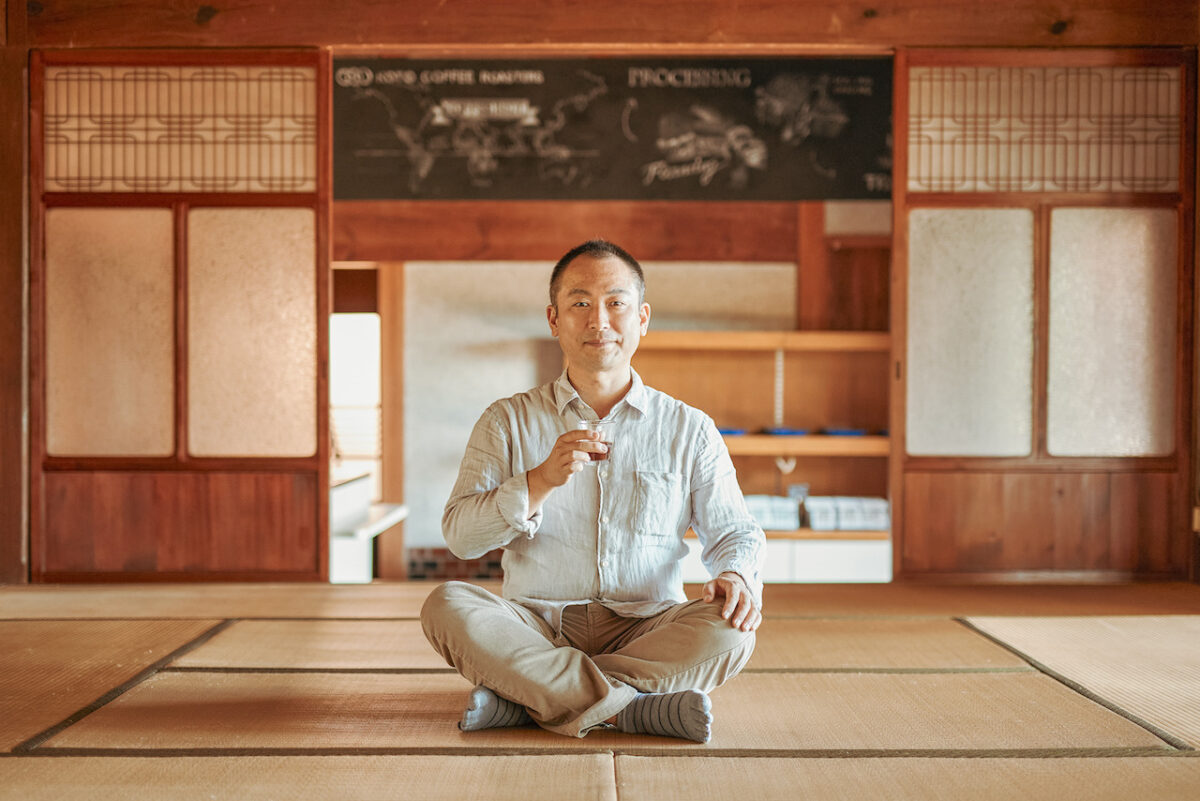
KOTO COFFEE ROASTERS is a roastery which opened in Kashihara, Nara Prefecture in June 2017 and moved to Gojo, again in Nara Prefecture, a place filled with nature, in 2020. The owner, Masakuni Sakata has won the Japan Coffee Roasting Championship (JCRC) in 2019. He was a backpacker when he was young and has traveled to 80 countries. What’s the story behind him?
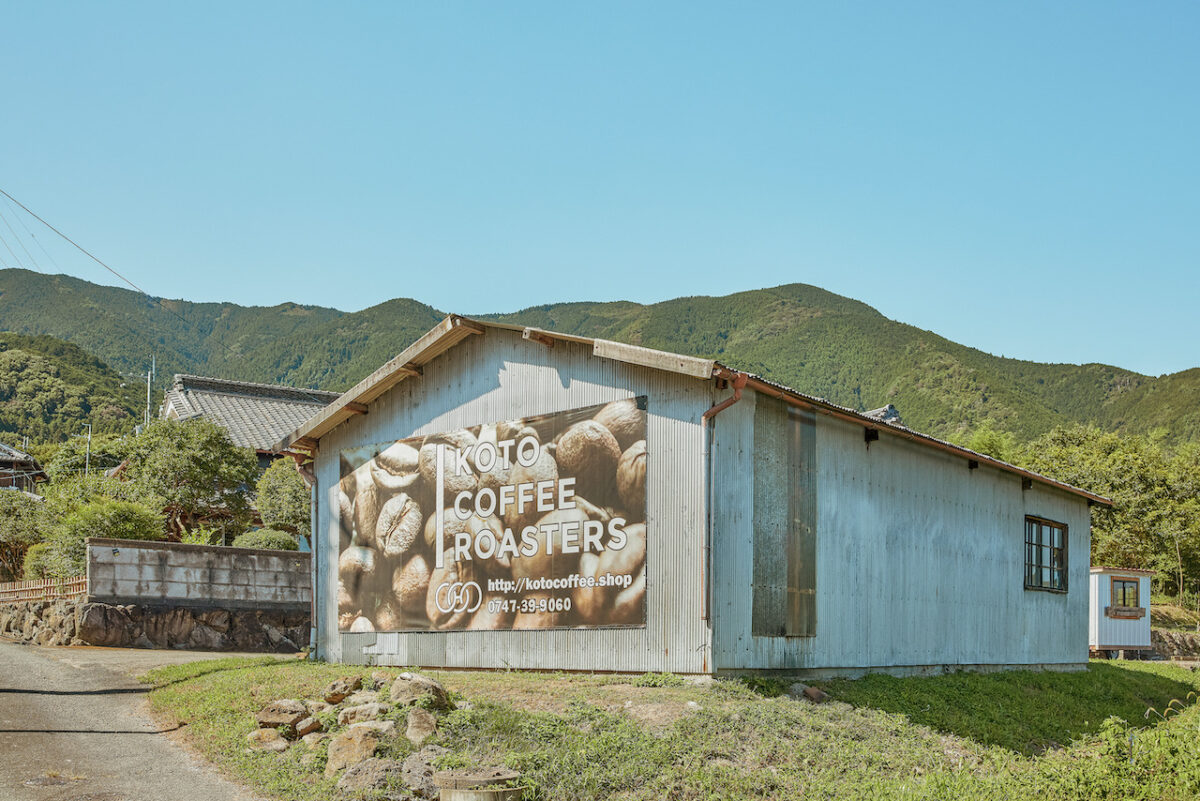
The ideal world of specialty coffee
“It’s quite similar to coffee origin here” says Masakuni looking at his roastery surrounded by the rich nature in Nara. He renovated an old house to build a roastery though it’s pretty unmatching to have a roastery in such a place when we think about his career as a coffee champion.
“I don’t think a roaster should be tied to work in a city. People tend to think coffee business succeeds in an urban area such as Tokyo, but in fact, the cost of rent is cheaper here and if you can form a good partnership with wholesalers, you can be successful in rural areas too. I wanted to prove that.”
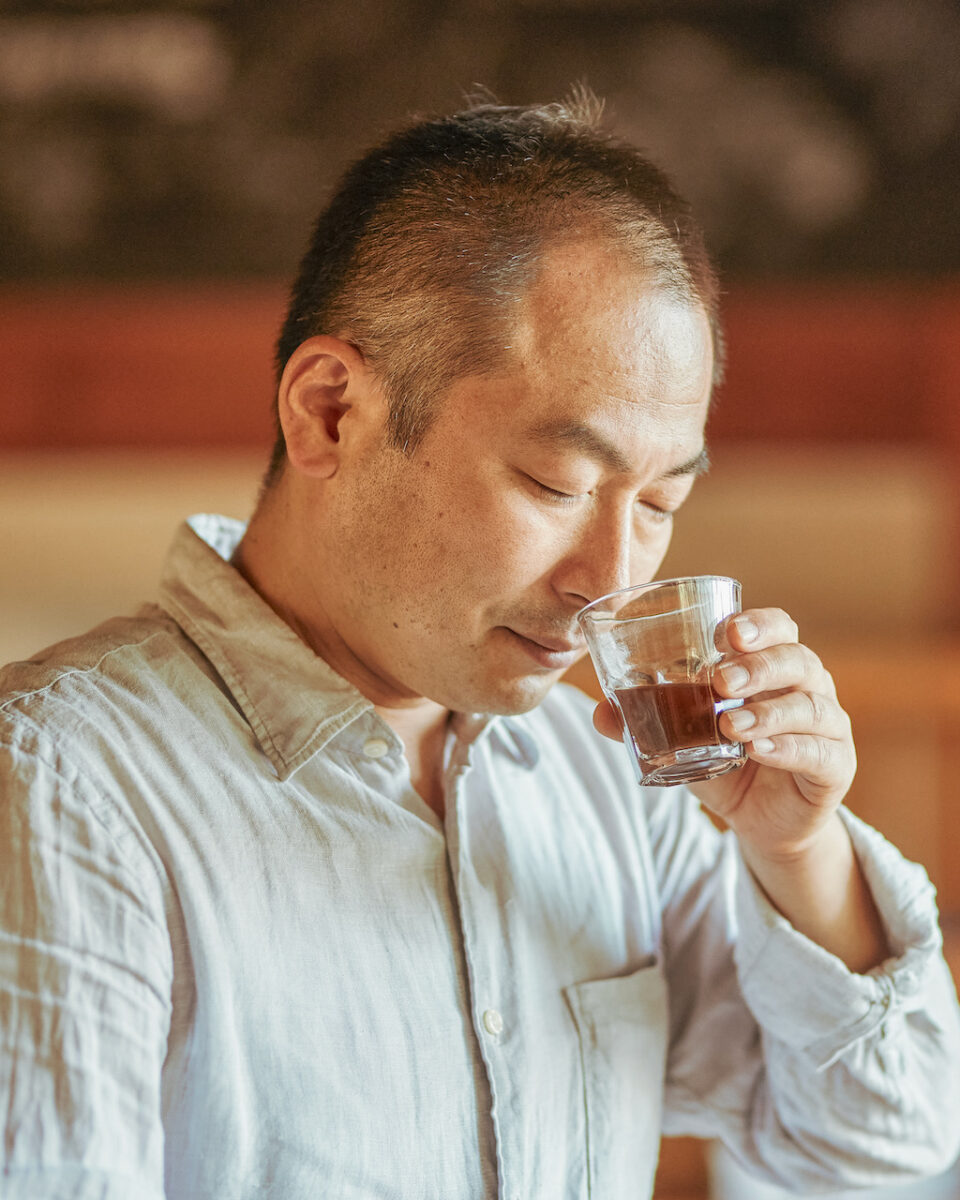
Masakuni, now 47, first encountered specialty coffee about 10 years ago. At that time, while being a househusband, he was doing personal investments on a side business. He visited around 10 well-known coffee shops in Tokyo before he went to see his friend in Costa Rica.
“Frankly, I didn’t really like any of them except one. That is MAMMOTH COFFEE located in Nerima, the last coffee shop I visited. It was astonishingly good. They probably use Ethiopian Yirgacheffe and the taste was unlike anything I had ever experienced. I still can’t forget the flavor of coffee they served. “
Masakuni then visited “Sakai Coffee”, a roastery and cafe, that the owner of MAMMOTH COFFEE recommended him to go to, which also sells green coffee. He asked the owner of Sakai Coffee whether he could buy green coffee in Costa Rica. The owner said “No you can’t. You could only buy one by the container.” That moment gave Masakuni a glimpse of the reality of the coffee industry.
“After this, I started studying specialty coffee. The more I did research on specialty coffee, the more I was attracted to its potential of building a ‘win-win structure’ between us and producers, which is different from donations and subsidies. If a roaster can serve a good cup of coffee, coffee producers can earn a decent amount of money and customers are guaranteed to enjoy good coffee. Of course, when a cup of coffee isn’t good enough, everyone involved in the process doesn’t get paid. But I thought it is wonderful that the producers’ efforts could be rewarded when a cup of coffee is great enough.”
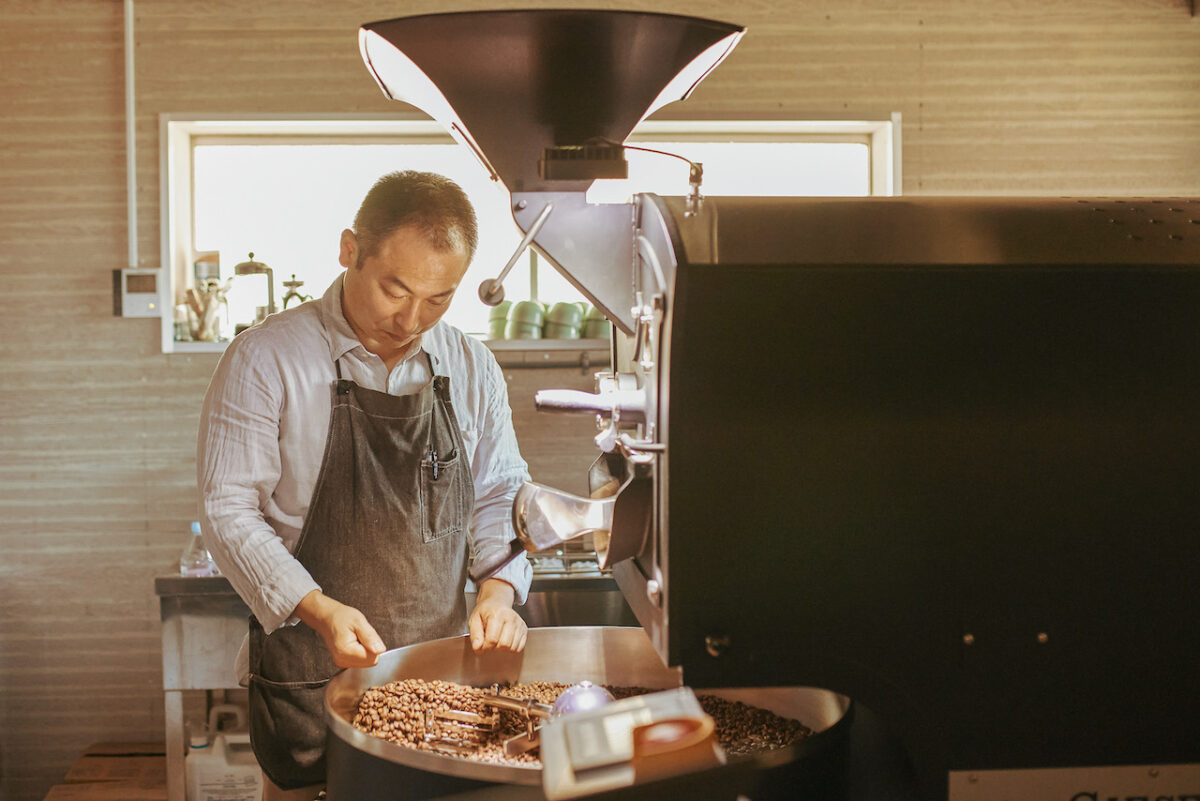
He once wanted to become a buyer of green coffee. But there are reasons why he has changed his career path and focused to be a roaster which is in the downstream of the supply chain.
“I thought no matter where you are in the process of the supply chain, you need to be able to identify the flavor in detail in order to set a right price for a cup of coffee. I started from studying cupping and then I got a sample roaster. I thought I should roast by myself to know whether coffee flavors are ultimately determined by green coffee or the roasting.
In addition, it was very risky for me to become an independent buyer because there are many trading-related tasks and interactions with locals. Plus, it costs a lot of money to keep a stock. Roasters also have the same role of being a bridge to the customers and the producers just like buyers. Those are the reasons why I decided to become a roster.”
By the time he made up his mind, he had a family and was a househusband. He rented a vacant property and bought a roasting machine. In June 2017, he opened his own roastery in Kashihara.

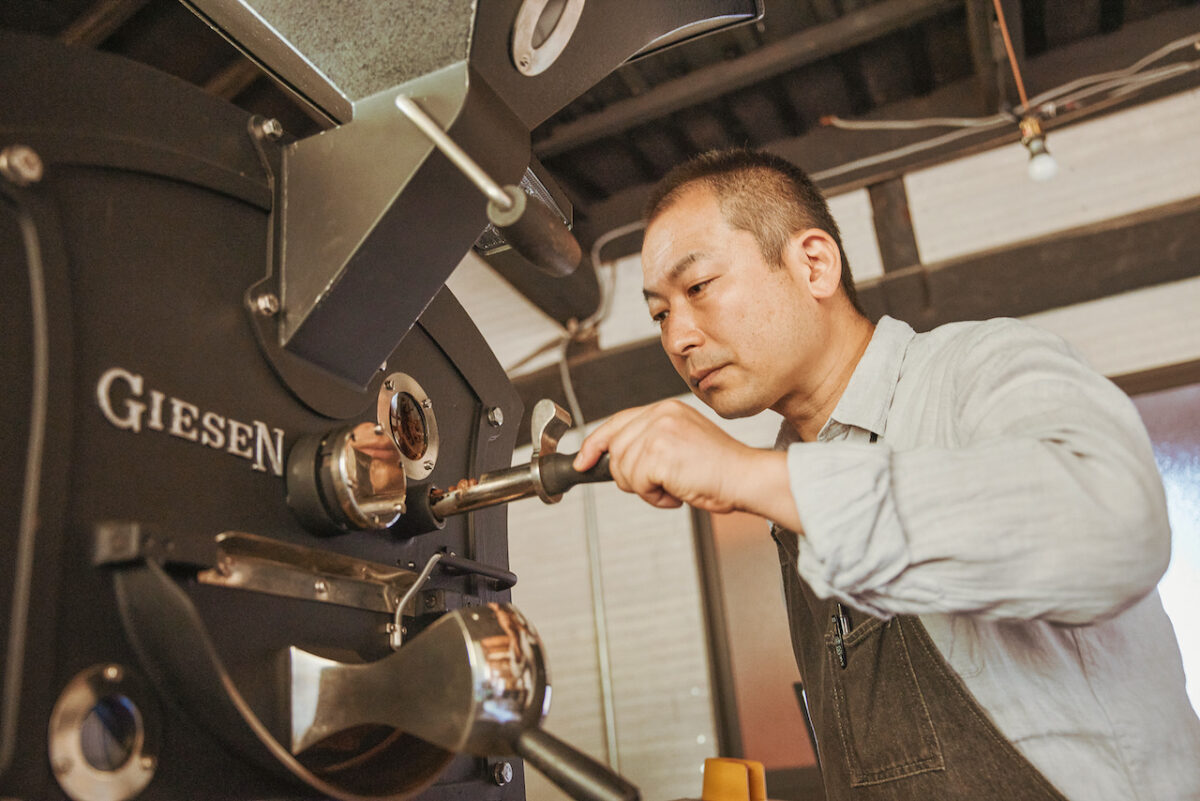
He felt something is wrong with the Industry structure
Masakuni has been traveling around the world and has absorbed various points of view. They made him feel something was wrong with the specialty coffee industry.
“Despite all the technological innovation, there has been no change in the structure : the consuming countries roasting coffee using green coffee imported from producing countries. The producers grow coffee as a cash crop and sell it as green coffee to exporters. In short, the selling price remains low because the producers can not add any values, as a result of the producers remaining in primary industry. They are stuck in poverty.
To resolve that problem, I believe that the diversification of primary industry will be important. It is called the “sixth industry initiative”. If farms and local communities can produce processed products such as coffee bags (secondary industry) and sell coffee they roasted (tertiary industry), the producers will be able to add more value to their green coffee and hire more locals.
Just like ‘Wine’ and ‘Sake’, coffee producers are going to sell their products and the time is coming. Anyways, I want to help the producers to be rich and that’s the main reason and goal of me becoming an entrepreneur.”
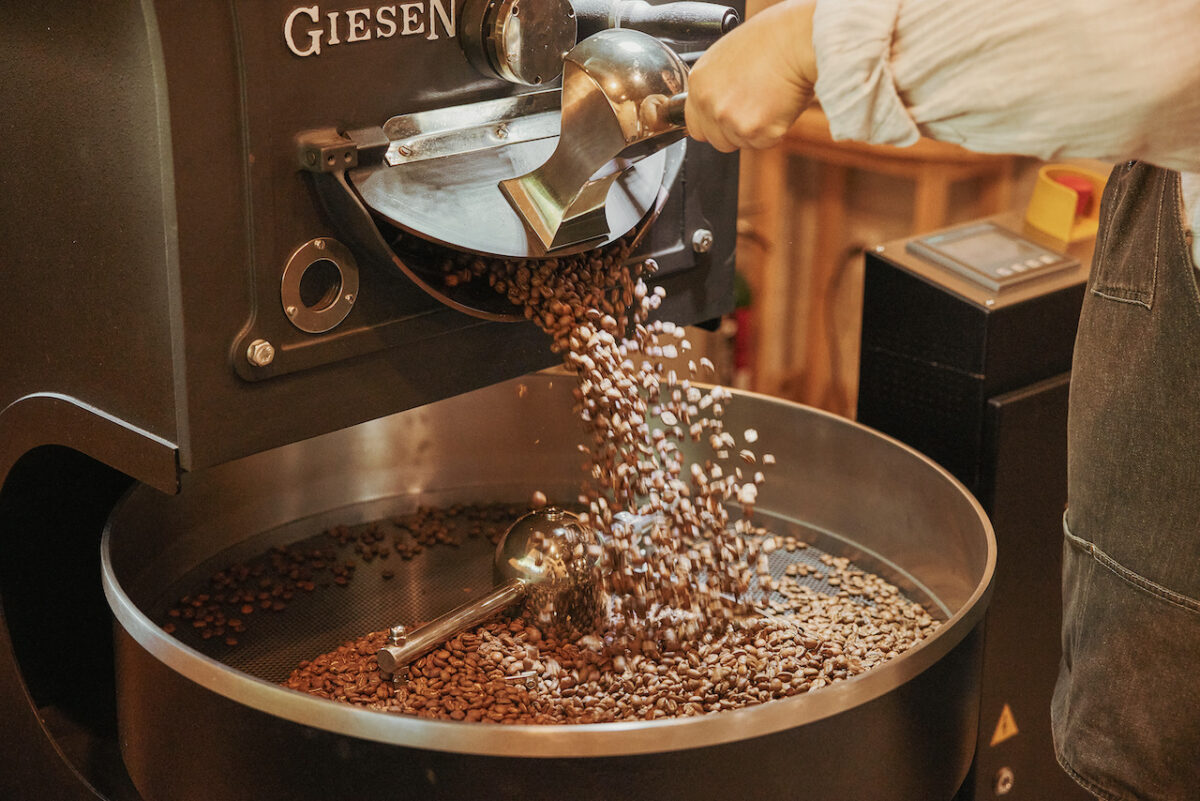
Masakuni won JCRC championship after 2 years and a half since he became a roster. His next motivation is to win the World Coffee Roasting Championship(WCRC).But, that is not his ultimate goal.
“I want to help create a new industry by sharing my roasting skills with the local people in producing countries. If the locals can roast coffee and export to other countries, the producing countries will succeed in diversification of primary industry and increase local employment. They simply would be able to have a better life and I want to contribute to that. To achieve these goals, I want to win WCRC to be more persuasive. Eventually, I want to change the industry by gaining more supporters.
However, since I am just a roaster, I would like to take part in a system that brings in more money to the producing countries. To work and communicate with people with similar ambition as I have, I need to keep expressing my opinions and thoughts on a regular basis, and also have to win the championship.”

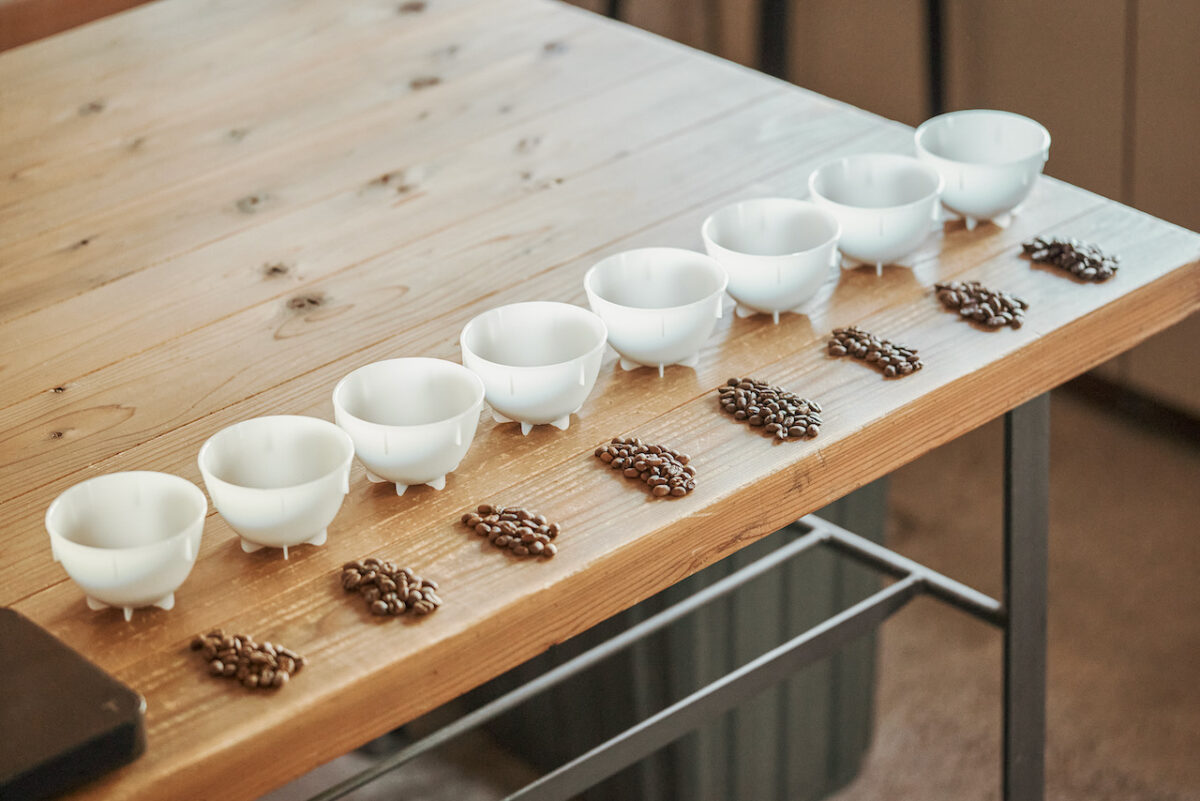
By traveling around the world, his common sense had been destroyed
Born and raised in a guest house his parents owned in Gifu Prefecture, it was natural for Masakuni to spend time and live with non-family members since he was a child. That experience might have influenced him to be a backpacker when he was in college. He traveled around the world, and he fell in love with it.
“I found it very stimulating to have my Japanese common sense destroyed when I traveled. For example, the news I had been watching through NHK and other Japanese media, they tell stories only from a Japanese perspective. Just like China has its own common sense and Western countries have their own, and their media report news through their own perspectives, I realized that Japan is never an exception. At the end of the day, Japan is a part of the world, and that realization broadened my mind. At the same time, I felt it is very risky to have a narrow perspective.”
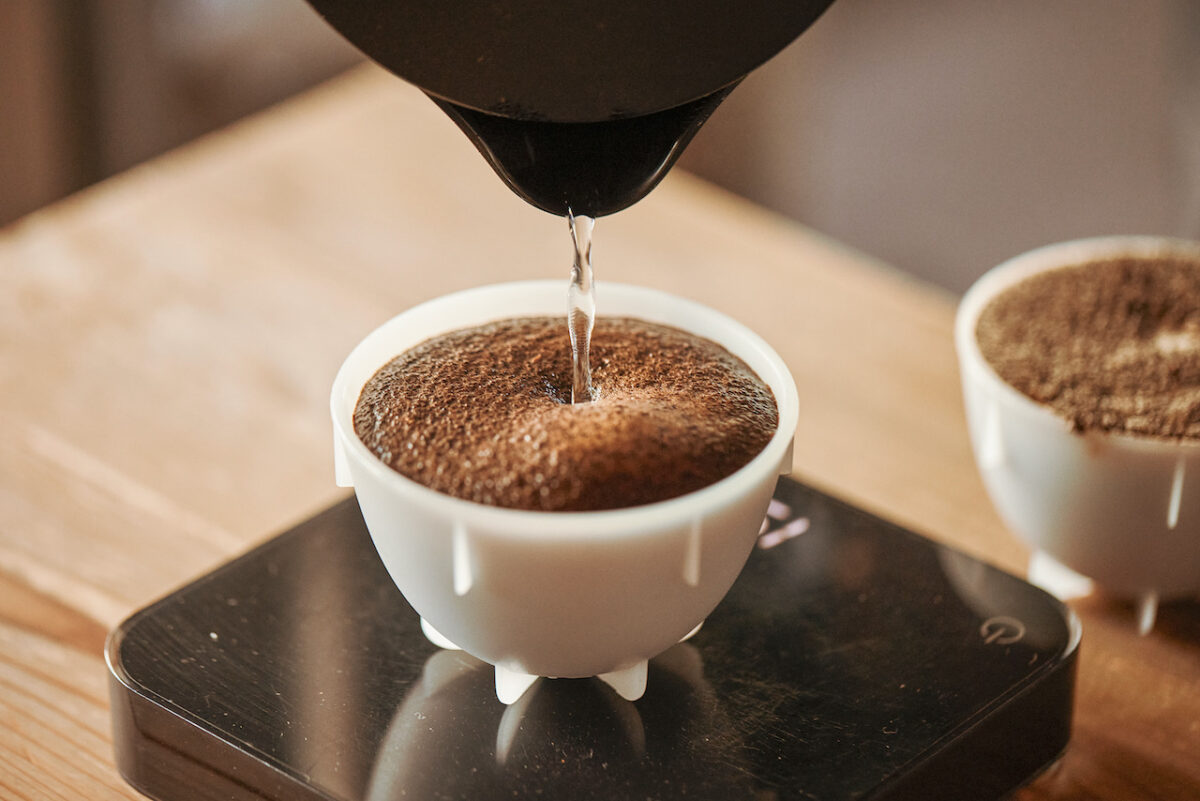
Masakuni spent his college years when it had been a hard time for college graduates to get jobs after the bubble economy burst. While being a freelancer became an option for college graduates, he didn’t choose to get a full-time job. He was making money by helping his parents’ guest house and taking part-time jobs that offered good pay in order to travel around the world.
“As I traveled around the world, I began to think that I want to visit around 200 countries by myself. Sometimes I was working part-time while traveling and spent as much time abroad as I could afford. There were times when I left Japan with just a suitcase, and I didn’t come back for 2 years. When I came back, I found that the design of the bill had been changed and I totally didn’t know about it.”
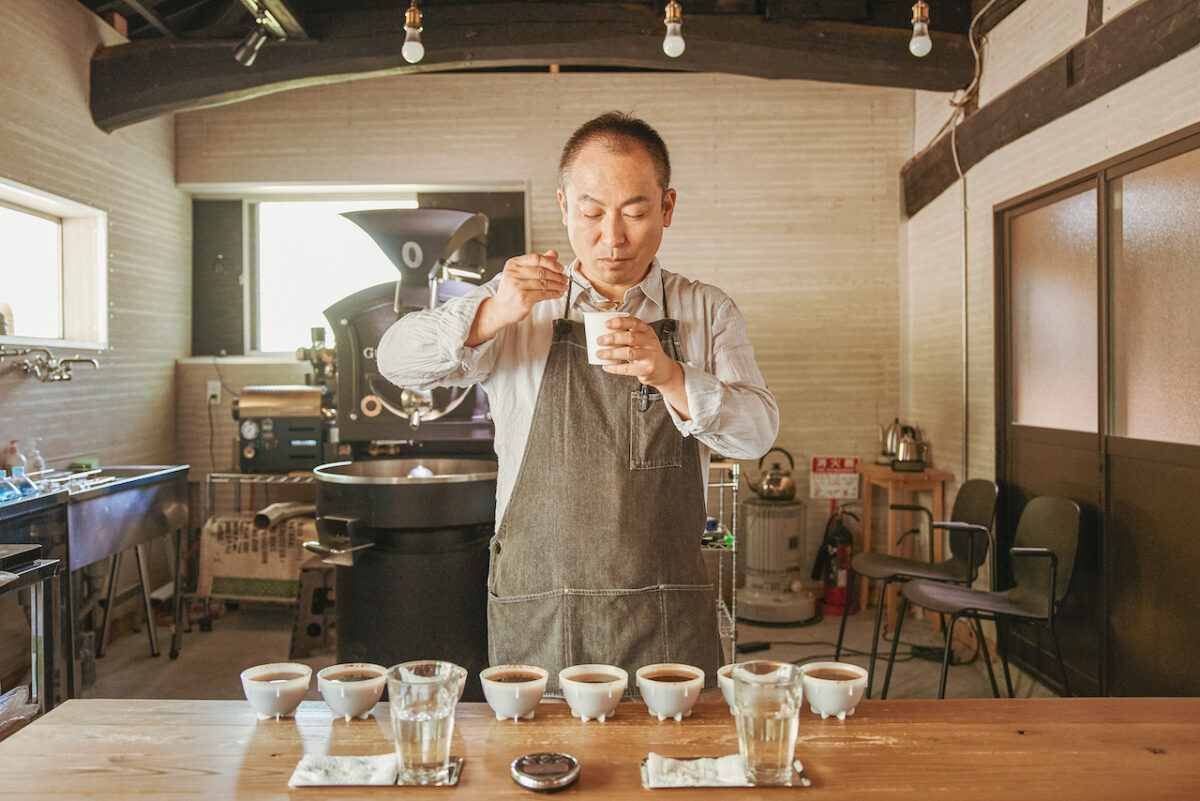
As Masakuni traveled to many countries with joy and excitement, he discovered something new about himself. He had seen many serious issues of poverty and he felt sorry to the locals for being just a traveler. He didn’t know what to do and felt powerless.
“That was the time when I came across specialty coffee and learned its business model, I thought I could help those people I met. I also thought if I became a green coffee buyer and was good at it, I could continue working while traveling.”

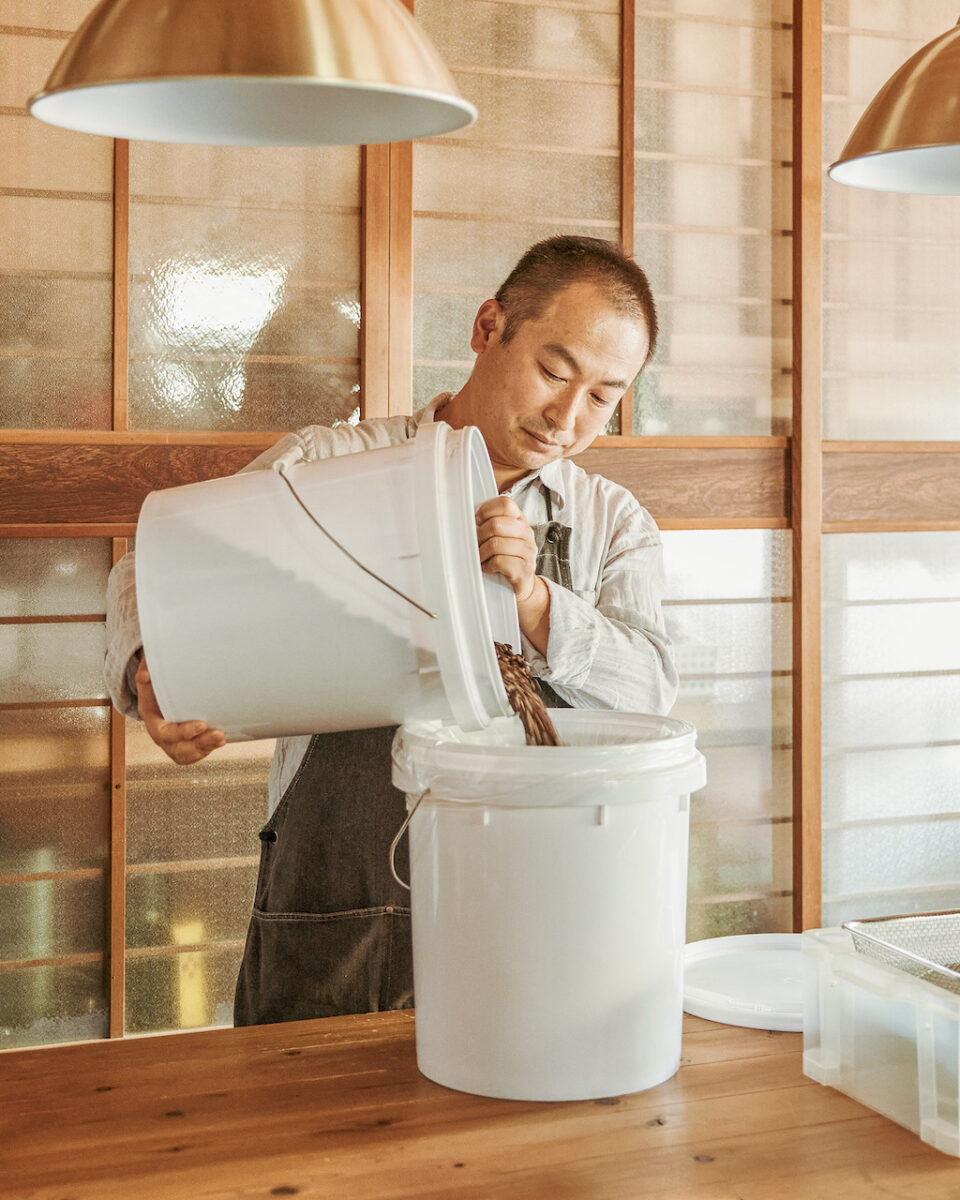
Making use of his experience as a “traveler”
It was in January 2020, just before the outbreak of novel coronavirus, he shifted his business on online selling while relocating his roastery to the old house where he is now based.
“Covid-19 epidemic made me think about the possibility of living as a ‘nomad roaster’, just like when I was dreaming while traveling. I’ve witnessed how fast society can change, from old black phones to the internet and social media, and the common sense we have today will have changed in 20 years.”
And I also think it is going to be very dangerous to just stick to the existing business model, working only in a roastery as a roaster, as competition between roasters in Japan becomes more and more fierce as the Japanese economy shrinks. In addition, consumers will buy more green coffee directly from the producers as roasting machines for home use are now on sale. For various reasons, I think it is going to be crucial for roasters to be more active, like starting your own consulting business or moving to a place that will buy your skills.
That’s the reason why I haven’t hired anyone at this moment. I keep my base, roastery here, and at the same time I’m prepared to get an offer from anywhere in the world. “
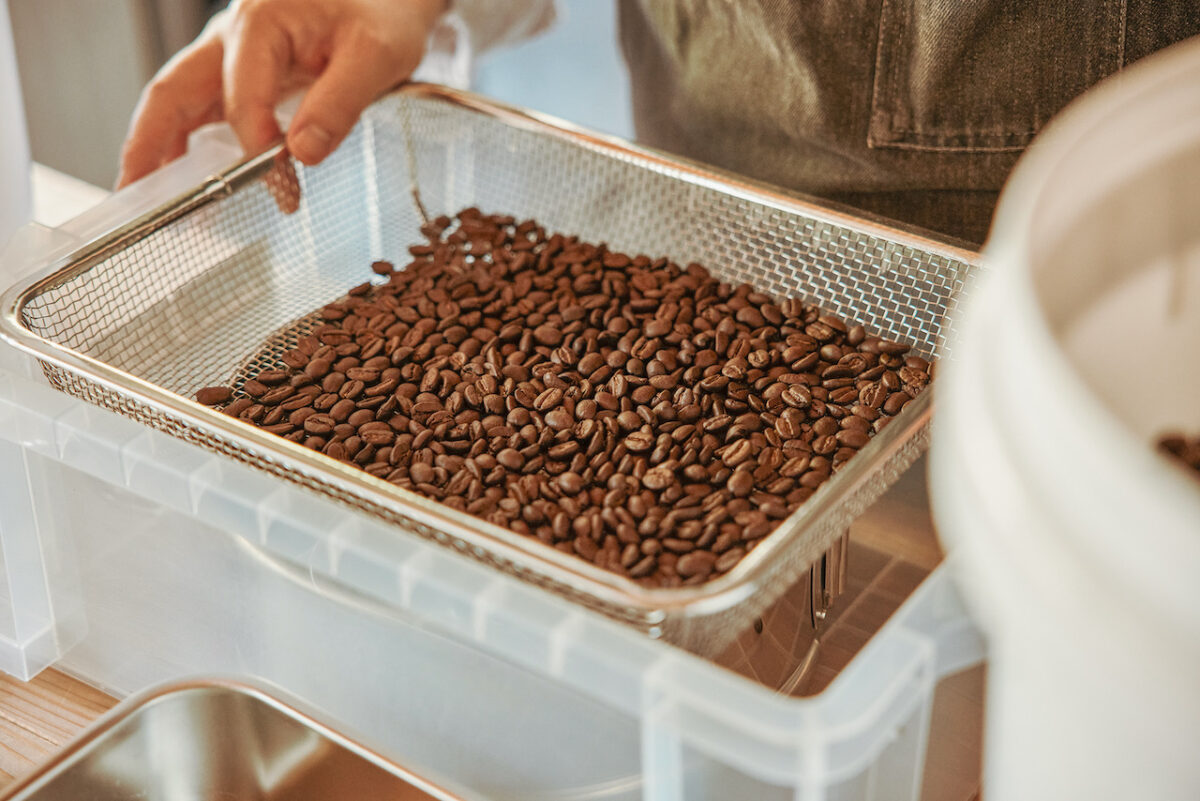
Masakuni’s work ethic is seen in his roasting.
“If you compare roasting to cooking fish, when the fish is fresh, I serve it as sashimi. When it is not fresh, I either boil or soak it in vinegar. I think a good chef can do both and the same is true for roasting. I wish I could serve sashimi and a customer could enjoy its freshness, but even if green coffee is not fresh enough, I think roasters have a responsibility to use it well and serve a good cup of coffee. That is our job. “
Masakuni sometimes uses unsold coffee and sells it at a discounted price for iced coffee by doing “double roasting”, roasting the same green coffee twice. He simply doesn’t waste the ingredient.
“I think I’m flexible because I have traveled around the world and been exposed to various points of view.”

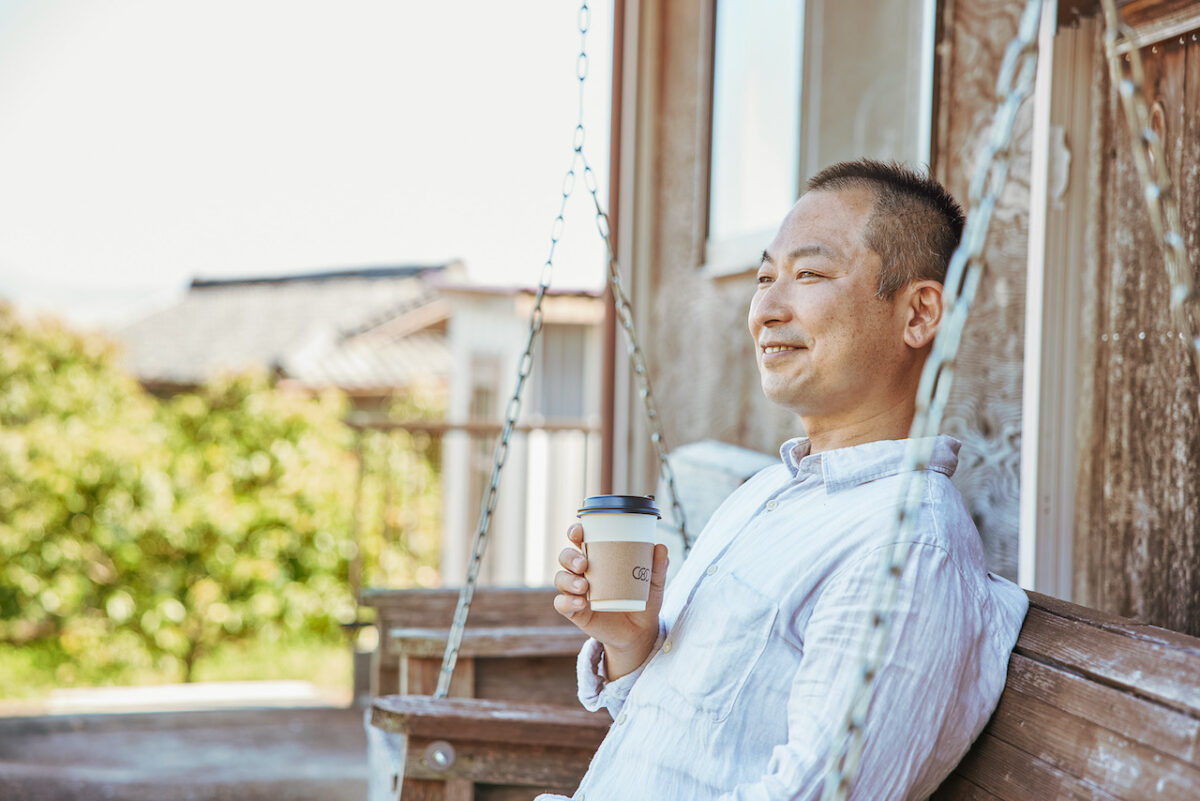
Doing his best to survive
Masakuni, who has traveled to 80 countries around the world and spent at least over 5 years abroad, says when he started job hunting in college, getting on a crowded train, he thought “I just can’t become a ‘Japanese salaryman’”. For him, the decision to live as a “traveler” wasn’t just an escape from the real world, but rather a wisdom to survive in a world with the law of the jungle.
“I have confidence in myself that I have eaten a lot of different foods and been exposed to various points of view through traveling. My strength is to be able to live anywhere and to adapt to any environment. These are the things I have learned from traveling.”
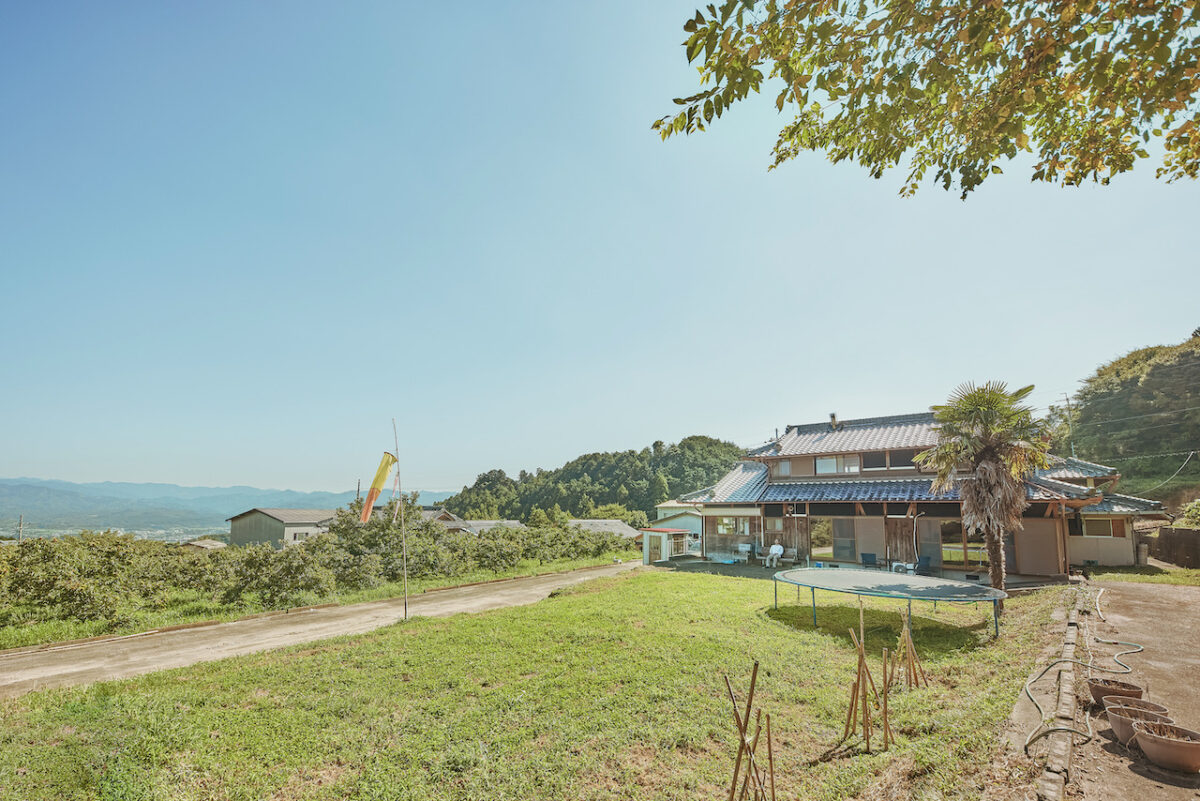
Masakuni works hard everyday to realize his ideal in the world of specialty coffee but deep inside, he still thinks he is a traveler.
“Right now, my priority is to feed my family, but I still want to go abroad. I never gave up on traveling to all 200 countries in the world. Whenever I imagine myself being in a world I never experienced, I genuinely get excited. And who knows? The place might be a utopia for me and I might want to die there. You can’t tell unless you actually see and experience it. One of the reasons why I chose to be a roaster was that I was expecting one day I could become a traveler again. “
written originally in Japanese by Tatsuya Nakamichi
Photo by Kenichi Aikawa
MY FAVORITE COFFEE
“I always drink a cup of coffee while cupping to check the quality the day after I roast it, and I feel happy when I can roast coffee as I intended or it turns out to be better than I thought.”









